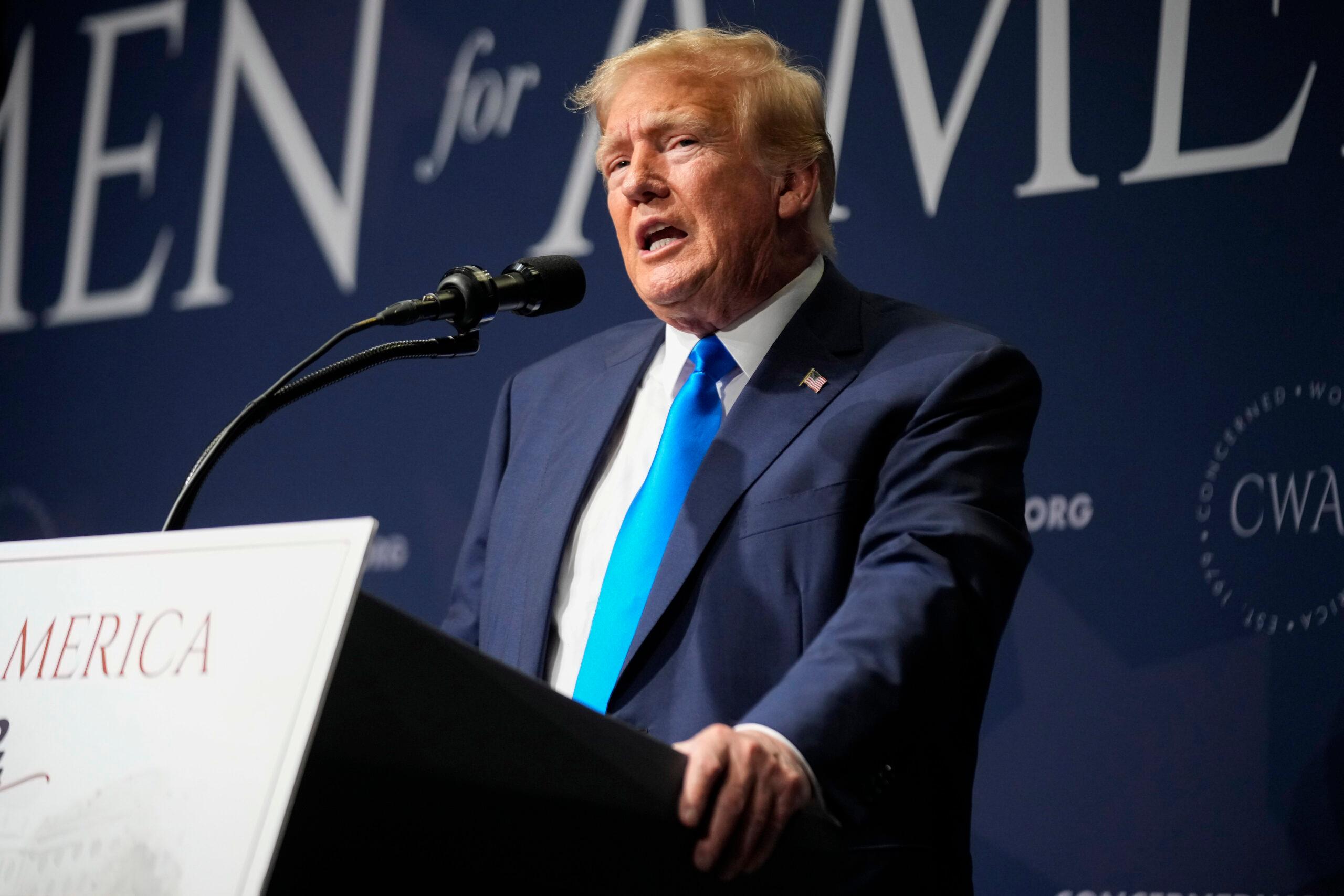
A state court judge in Denver has concluded that former president Donald Trump’s name can be placed on Colorado’s Republican primary ballot next spring, ruling that, while he did engage in an insurrection, the constitution does not bar him from seeking the presidency again.
A group of Republican and unaffiliated voters brought the case, arguing in their suit that Trump’s actions around the January 6 attack on the U.S. Capitol amounted to inciting an insurrection. Section 3 of the 14th Amendment bars those who’ve taken an oath to the U.S constitution and later rebelled against the government from holding elected office again.
In her ruling, Denver District Court judge Sarah Wallace said that although he engaged in an insurrection, that section of the constitution does not appear to apply to candidates for president.
“The Court holds there is scant direct evidence regarding whether the Presidency is one of the positions subject to disqualification,” wrote Wallace in her 102-page decision.
Wallace noted that Section 3 includes a long list of elected positions that could be disqualified under the clause, stating “No person shall be a Senator or Representative in Congress, or elector of President and Vice-President, or hold any office, civil or military, under the United States, or under any State," and that President and Vice President are not among them.
“Under traditional rules of statutory construction, when a list includes specific positions but then fails to include others, courts assume the exclusion was intentional,” she concludes, noting that there is tension between the competing interpretations of the amendment, and a lack of definitive historical guidance.
Citizens for Responsibility and Ethics in Washington, a liberal group which brought the lawsuit on behalf of six Republican and unaffiliated voters, said it will appeal the decision to the state supreme court.
In a portion of the ruling that CREW hailed as a victory, Wallace did agree with the plaintiffs on their claim that the former president engaged in an insurrection, writing, “...The Court concludes that Trump acted with the specific intent to disrupt the Electoral College certification of President Biden’s electoral victory through unlawful means; specifically, by using unlawful force and violence.”
In her decision she said Trump cultivated a culture that embraced political violence through his consistent endorsement of it.
She wrote that Trump’s record of reacting favorably to political violence committed at his rallies or in his name was well established, as was his cultivation of relationships with those at the political extreme.
“Trump has consistently endorsed violence and intimidation as not only legitimate means of political expression, but as necessary, even virtuous,” she wrote.
“Further, the Court has found that Trump was aware that his supporters were willing to engage in political violence and that they would respond to his calls for them to do so.”
Wallace rejected the Trump campaign’s argument that he only engaged in constitutionally protected political speech.“The Court holds that even after the attack, Trump’s tweet justified violence by calling the attackers ‘patriots,’ and continued to perpetuate the falsehood that justified the attack in the first place, his alleged ‘sacred landslide election victory.’”
This decision is the third ruling in a little over a week against lawsuits seeking to knock Trump off the ballot by citing Section 3 of the amendment. The Minnesota Supreme Court last week said Trump could remain on the primary ballot because political parties have sole choice over who appears, while a Michigan judge ruled that Congress is the proper forum for deciding whether Section 3 applies to Trump.
The Colorado case appears to be the first in which the underlying merits of the legal arguments were adjudicated.
Wallace diverged with the Minnesota and Michigan courts by concluding there are circumstances in which the Colorado Secretary of State can block a party’s candidate from the primary ballot, but said it had to be due to an unqualified “objective, knowable fact.”
But Wallace wrote that whether Trump should be disqualified under Section 3 of the 14th Amendment is “not ‘an objective, knowable fact.’”
The petitioners had hoped a ruling in their favor in the Colorado case could help set a precedent other states might follow. And despite Wallace concluding Section 3 doesn’t apply in this case, they found much to like in her ruling.
“The Court found that Donald Trump engaged in insurrection after a careful and thorough review of the evidence,” said one of the attorneys, Mario Nicolais. “We are very pleased with the opinion and look forward to addressing the sole legal issue on appeal, namely whether Section 3 of the Fourteenth Amendment applies to insurrectionist presidents. We believe that it does.”
CPR has reached out to an attorney for the Trump campaign and is awaiting a comment.
This section of the 14th Amendment at issue in the case, known as the disqualification clause, was enacted in the wake of the Civil War. Voters in some Southern states chose to return former members of the Confederacy to Congress, enraging members from Union states.
However, the clause was rarely used from its start. In 1872, Congress voted to apply a blanket amnesty for most former Confederates, and it was invoked only a handful of times after that. That was, until recently.
Since the attack on the Capitol on January 6, 2021, different groups and interests have looked at Section 3 as a potential tool to keep Trump and his most ardent supporters from holding office.
Cases against three members of congress — Marjorie Taylor Green, Paul Gosar and Madison Cawthorn — were all dismissed. But a court in New Mexico did remove a county commissioner after he was convicted in federal court of entering a secure area of the Capitol on January 6.
This story includes reporting from the Associated Press
Editor's note: An earlier version of this story misstated the name of the group behind the lawsuit. It's Citizens for Responsibility and Ethics in Washington.









